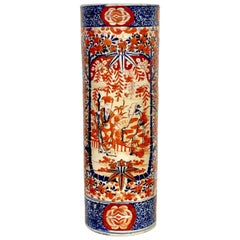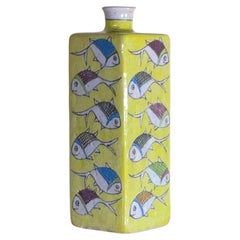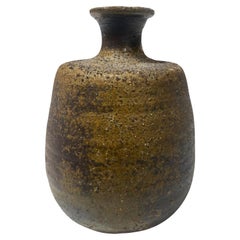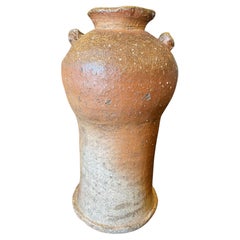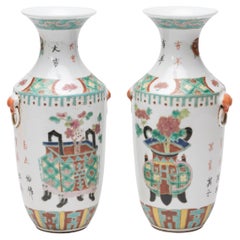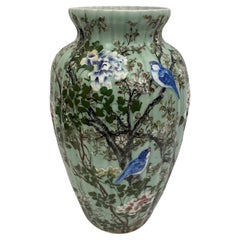Ceramics
19th Century Japanese Antique Ceramics
Porcelain
1960s Persian Vintage Ceramics
Ceramic
Mid-20th Century Japanese Showa Ceramics
Stoneware
Mid-20th Century Japanese Showa Ceramics
Pottery, Stoneware
Early 20th Century Chinese Chinese Export Ceramics
Porcelain
Early 20th Century Japanese Meiji Ceramics
Porcelain
Mid-20th Century Chinese Chinese Export Ceramics
Ceramic
Late 19th Century Chinese Qing Antique Ceramics
Ceramic
20th Century Japanese Showa Ceramics
Clay
1940s Japanese Vintage Ceramics
Porcelain
Mid-19th Century Chinese Ming Antique Ceramics
Earthenware
Mid-20th Century Chinese Qing Ceramics
Clay, Stoneware
Late 17th Century Japanese Edo Antique Ceramics
Porcelain
Late 20th Century Chinese Ming Ceramics
Porcelain
2010s Malaysian Modern Ceramics
Copper
20th Century Chinese Chinese Export Ceramics
Pottery
20th Century Chinese Export Ceramics
Porcelain
19th Century Japanese Japonisme Antique Ceramics
Porcelain
1840s Chinese Chinese Export Antique Ceramics
Ceramic
1950s Japanese Late Victorian Vintage Ceramics
Porcelain
Late 20th Century Chinese Chinese Export Ceramics
Celadon
16th Century Japanese Edo Antique Ceramics
Pottery, Stoneware
Early 20th Century Chinese Ceramics
Porcelain, Paint
1690s Chinese Chinese Export Antique Ceramics
Porcelain
Late 19th Century Chinese Chinese Export Antique Ceramics
Porcelain
15th Century and Earlier Chinese Edo Antique Ceramics
Ceramic, Porcelain
Late 19th Century Chinese Chinese Export Antique Ceramics
Porcelain
Late 18th Century German Chinoiserie Antique Ceramics
Porcelain
Late 17th Century Chinese Qing Antique Ceramics
Porcelain
20th Century Chinese Qing Ceramics
Porcelain
15th Century and Earlier Cambodian Other Antique Ceramics
Ceramic
2010s Malaysian Modern Ceramics
Copper
1990s Japanese Ceramics
Porcelain
Early 20th Century Chinese Ceramics
Porcelain
20th Century Chinese Ceramics
Metal
Mid-20th Century Chinese Chinoiserie Ceramics
Ceramic
19th Century Chinese Chinese Export Antique Ceramics
Celadon
Early 20th Century Qatari Islamic Ceramics
Earthenware, Pottery
Early 1900s Japanese Antique Ceramics
Ceramic
Mid-20th Century Chinese Chinese Export Ceramics
Porcelain
20th Century Chinese Qing Ceramics
Ceramic, Porcelain
Mid-20th Century Chinese Mid-Century Modern Ceramics
Ceramic
Mid-20th Century Chinese Mid-Century Modern Ceramics
Ceramic
2010s Malaysian Modern Ceramics
Copper
15th Century and Earlier Cambodian Other Antique Ceramics
Ceramic
18th Century Japanese Edo Antique Ceramics
Pottery, Stoneware
Mid-20th Century Japanese Showa Ceramics
Stoneware
Mid-20th Century Japanese Showa Ceramics
Stoneware
1890s Chinese Qing Antique Ceramics
Earthenware
Mid-19th Century Japanese Meiji Antique Ceramics
Porcelain
2010s Malaysian Modern Ceramics
Copper
Early 20th Century Chinese Qing Ceramics
Brass
20th Century Hong Kong Chinoiserie Ceramics
Ceramic, Paint
Mid-20th Century Japanese Mid-Century Modern Ceramics
Wood
20th Century Chinese Qing Ceramics
Ceramic
Early 18th Century Chinese Chinese Export Antique Ceramics
Porcelain
17th Century Chinese Ming Antique Ceramics
Ceramic
Mid-19th Century Japanese Edo Antique Ceramics
Pottery, Stoneware
Antique, New and Vintage Asian Ceramics
With their rich and diverse history, antique, new and vintage Asian ceramics offer colorful and sophisticated ways to add flair to any space.
Japanese pottery dates back at least 13,000 years to the Jōmon period. Pieces from the Late Jōmon era display a rope-cord pattern encircling a pot or jug. During the Muromachi period, potters created simple bowls and utensils frequently used in tea ceremonies and were made as both functional and aesthetic objects.
Ceramics made during Japan’s Meiji period, from 1868 to 1912, reflected an explosion of artistic expression propelled by new access to international trade. Details became more intricate and refined, and colors were enhanced with new glazing practices.
Chinese porcelain, meanwhile, is often identified by its shape. Each reign and dynasty had specific shapes and styles that were encouraged by the imperial ruler. During the Song dynasty, for instance, there were four dominant types of ceramic vase shapes: plum-shaped, pear-shaped, cong-shaped (tall and square) and double-gourd.
Chinese ceramics that were made during the Qing dynasty were demonstrative of an expanded artistic expression, with more delicate shapes and a focus on intricate detailing. The shapes of ceramics from this era are thinner, taller and have subtle features like a gentle flare, such as on the mallet-shaped vase.
Later, the 17th- and 18th-century interior design trend of chinoiserie brought Asian paintings and screens, textiles and other art and furniture from the continent into many European homes.
Explore an extensive range of antique, new and vintage Asian ceramics on 1stDibs to find the perfect piece for your home.
